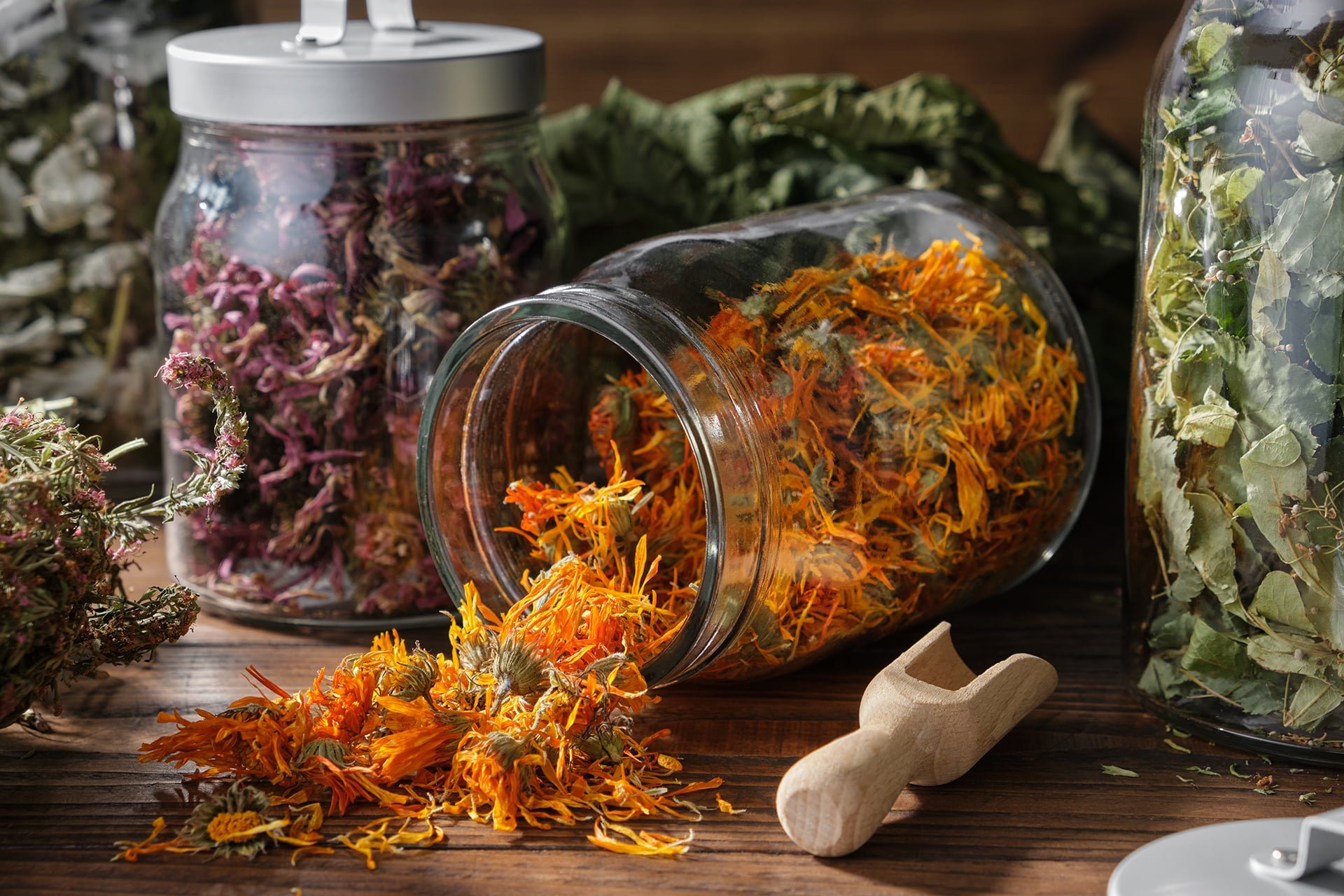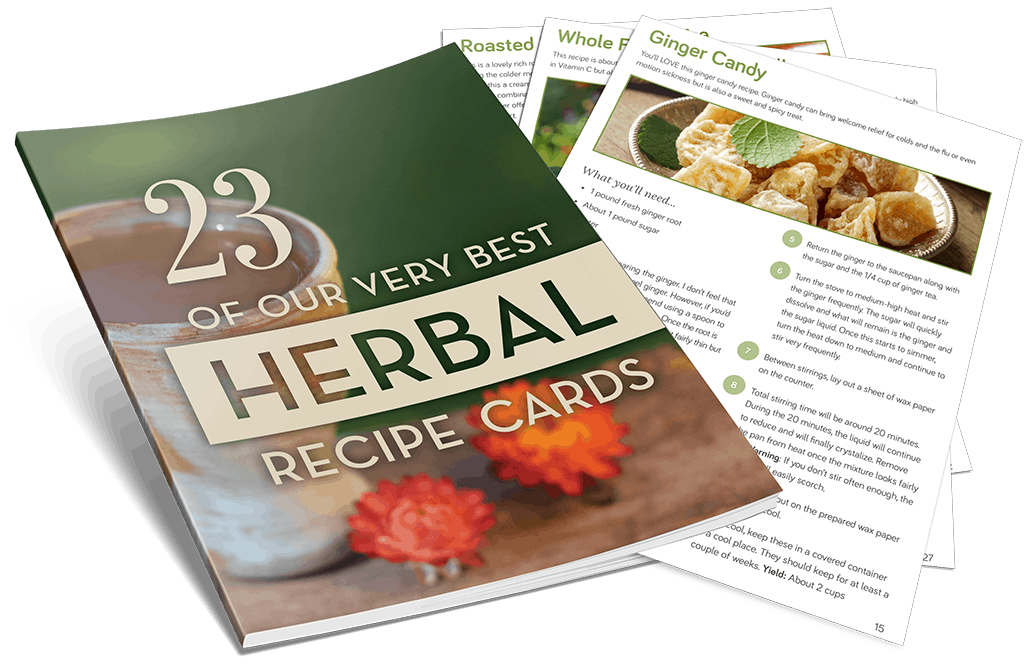Picture this: you have a beautiful abundance of herbs. Perhaps you harvested them yourself or perhaps you purchased them from an herb shop. Now your home is filled with this abundance and you might be asking yourself, “How do I store these herbs?” and “How do I keep these tender herbs fresh?”

How you store herbs depends on several different factors. Are they fresh? Are they dried? How much herb do you have? How much storage space do you have? All these questions and more go into assessing how best to store your herbs.
So to help you on your herb storage journey, below I’ll offer five key tips on how to store herbs easily at home…
Storing Fresh Herbs
If you have a bunch of fresh herbs that you’d like to use within the week, you can store them in your fridge. Some herbs do well wrapped in a damp paper towel and placed in the vegetable crisper, and you can also put stems of herbs in a glass of water so that they stay crisp throughout the week. Some of my favorite herbs to store in the fridge include cilantro, parsley, and thyme.

Freezing Herbs
If you have a bounty of fresh herbs that you would like to have access to throughout the year, you can consider freezing them. I often do this with berries like elderberry and hawthorn berry that would otherwise take on a bit of a different flavor as they dry. Freezing them leaves them feeling fresh and vibrant throughout the year, and I love conveniently reaching into my freezer to grab these berries for syrups and decoctions. You can also freeze leafy herbs like comfrey or cleavers by chopping them up and freezing them in ice cube trays. I then remove the herbal ice cubes and store them in freezers bags.

Jarring Dried Herbs
Have a bunch of dried herbs? My favorite way to store them is by placing them in glass jars that seal well. An airtight container will help maintain the freshness of the plant material, and by storing them in glass you don’t have to worry about a plastic container breaking down and tainting your herbs.
Also, if you want to learn how to dry herbs, you can check out our herb drying tips here.
Labeling Your Herbs
One of the most important things to keep in mind when storing your herbs is labeling them. On your label you’ll want to include the date of purchase or harvest, the type of herb (or type of herbs), and the plant part. This will give you the confidence to reach for these herbs even months later and know exactly what type of herb and plant part you’re working with.

How to Make Herbal Remedies at Home
Now that you’ve got all your herbs prepared for storage, it’s time to make some herbal remedies! Getting started with remedy making can be intimidating. Luckily, Apothecary, a beginner’s guide to crafting herbal medicine, can help you confidently make remedies in your own kitchen in no time. Apothecary is a series of videos and recipes that walk you through step-by-step how to make 15 Core Herbal Remedies. This simple herbal learning system empowers you to successfully make your own herbal medicines the easy, fun way.
PS… and before I go I couldn’t help but answer a few frequently asked questions about storing common herbs…
How do I store delicate herbs?
You can store delicate herbs like flowers by drying them and then storing them in airtight containers.

What is the shelf life for herbs?
The shelf life of herbs depends on several factors, including but not limited to the type of herb, how you store the herb, and your climate. If you live in a humid climate, for example, your dried herbs might be more prone to mold and spoiling. If I store my dried herbs in air tight jars, I notice that they tend to last for a few years. To check if they’re still good, I use my senses, especially smell, touch, and sight to assess them. If they’re still aromatic, crisp, and I don’t see signs of spoilage I still work with them. If I notice an “off” smell, they feel limp or damp, or I see signs of mold, dark spots, or rot then I compost them. For frozen herbs, I tend to use them within a year of freezing and always asses for freezer burn.
Is it better to freeze or dry fresh herbs?
It really depends on what type of herb you’re storing. For example, some herbs like cleavers are best when either enjoyed fresh or frozen. Other herbs like calendula and chamomile do better when dried. I tend to dry bark, flowers, roots, and leaves and freeze berries, but there are always exceptions.








